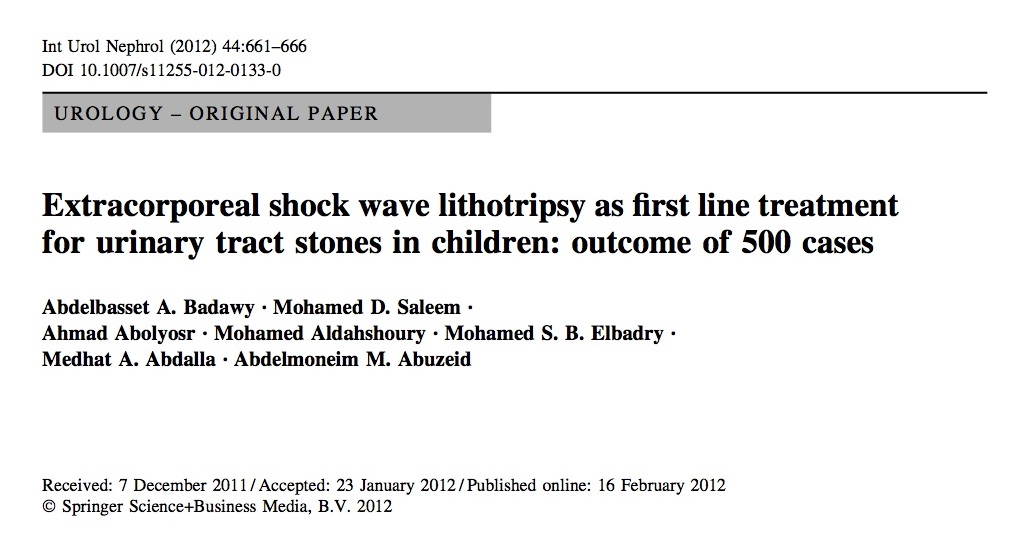Objective Finasteride had been used to control frequent hematuria due to BPH. In this study, we tried to test the efficacy of finasteride to control refractory idiopathic hemospermia lasting for more than 3 months for which conservative treatment has failed.
Patients and methods In a period from 1998 to 2008, 70 patients with hemospermia presented to urology department, Sohag university hospital. Only 24 patients were diagnosed as having refractory hemospermia of idiopathic nature. They were divided and randomized into two equal groups, 12 patients each. One group received finasteride 5 mg daily for 3 months, and the second group received placebo. Patients were followed at monthly intervals both subjectively and objectively by semen analysis and TRUS for three successive months and after 1 year. Results In the finasteride-treated group, 8 patients (66.7%) have demonstrated a remission of the episodes of their hemospermia symptom within 2–5 weeks after the start of treatment. We confirmed this subjective improvement by repeated semen analysis. Patients continued treatment for 3 months without recurrence of bleeding. On the other hand, only three patients (25%) in placebo group mentioned the disappearance of their symptom after a period of
A. A. Badawy (&) A. A. Abdelhafez A. M. Abuzeid Sohag Faculty of Medicine, Sohag University,
Sohag, Egypt
e-mail: drabadawy@hotmail.com
1–2 months on treatment. On semen analysis, those three patients showed considerable number of RBCs ([50/HPF).
Conclusion Finasteride could be safely used as a treatment for patients with idiopathic refractory hemospermia after exclusion of the other organic causes. However, our results are preliminary, and larger series with longer follow-up are required to confirm the results.
Keywords Hemospermia Finastride Idiopathic Semen Prostate


